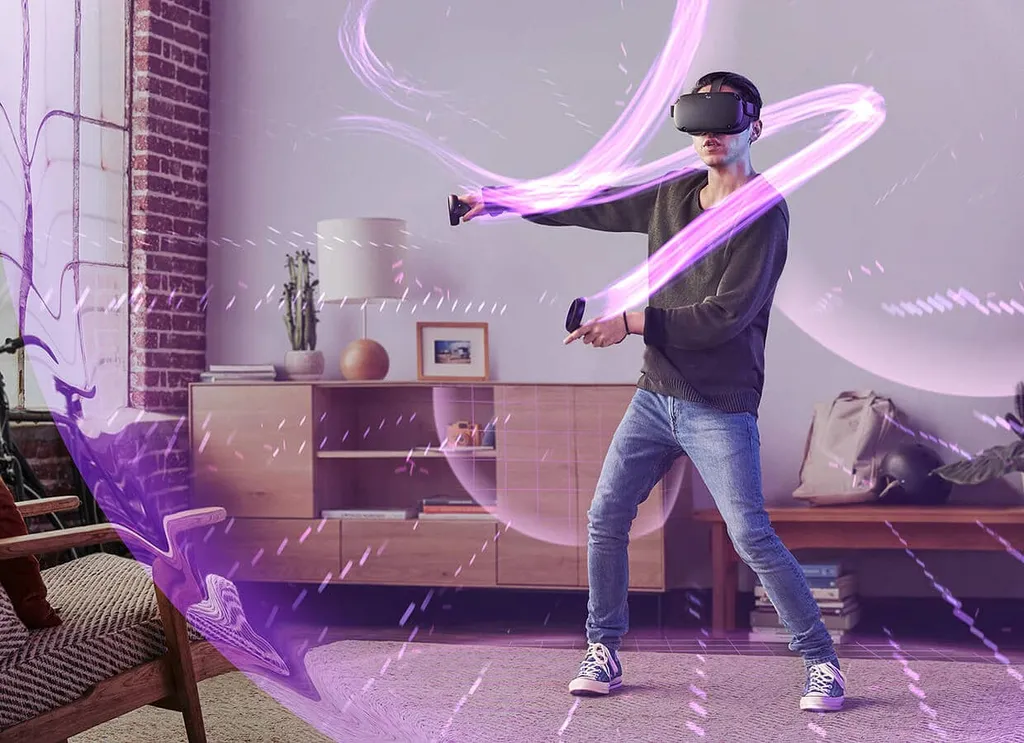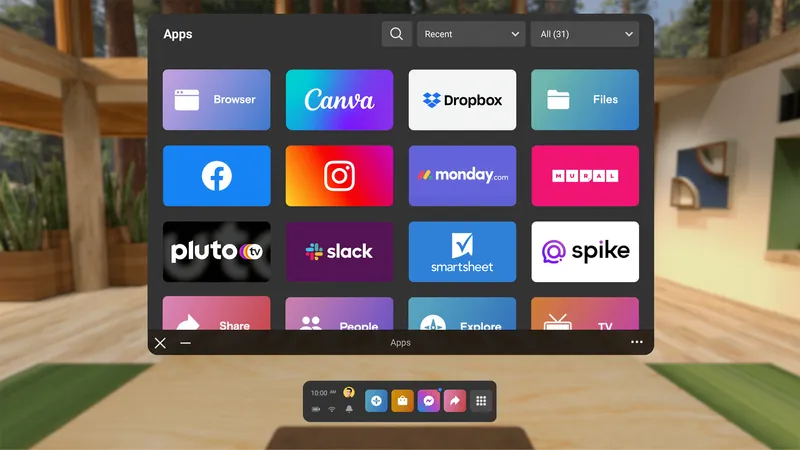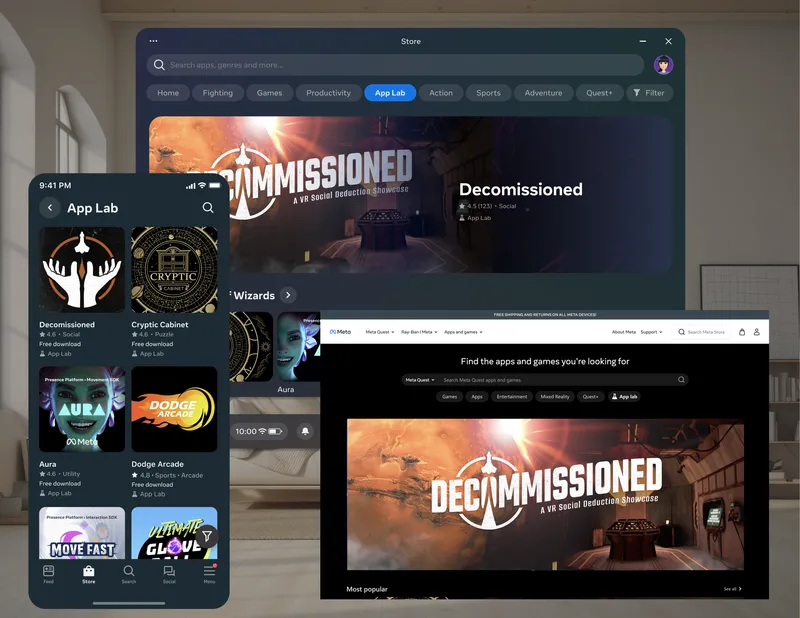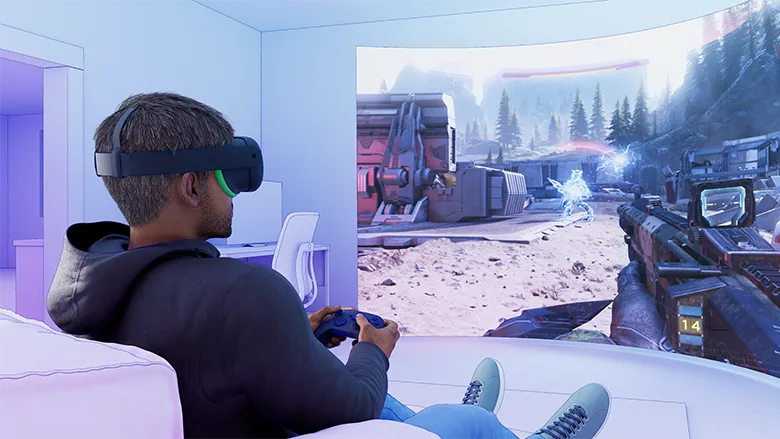During Facebook Q4 2019 earnings call, CFO David Wehner revealed that ‘Other’ revenue growth from Q4 2018 was driven by the company’s room scale standalone VR headset, Oculus Quest.
“Other revenue was $346 million, up 26%. Year-over-year growth was driven by sales of Oculus Quest.”
Additionally, CEO Mark Zuckerberg stated that Quest sales “are stronger than we expected” — a statement he has not made about any other Oculus headset.
It’s important to note that “Other” is the smallest section of Facebook’s revenue. The company’s main business is still targeted advertising, which brought in over 98 percent of revenue.
Facebook did not give specific sales numbers for its consumer VR hardware products, and it has never done so.
Comparing To Go & Rift Statements
A year ago, during the Q4 2018 earnings call, Wehner stated that Oculus Go, the company’s previous standalone headset, “contributed” to growth in that quarter. Go is a low end headset which can only track your head’s rotation, not position.
However, Go was also mentioned as also being a notable contributor to costs, in the form of marketing. This likely referred to its celebrity campaign featuring Wiz Khalifa, Jonah Hill, Adam Levine, Leslie Jones, and Awkwafina.
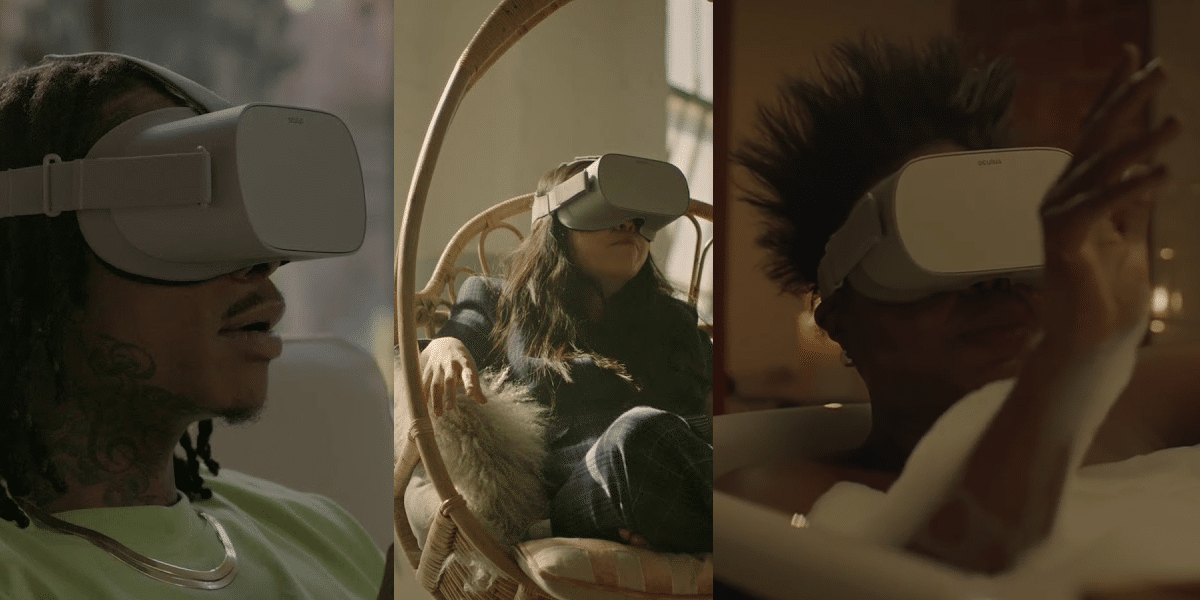
The Quest statement from this week uses the more strong “driven” over “contributed”. However, this has to be balanced with the fact that each Quest sale earns twice the revenue of a Go sale.
Unlike Go, no mention was made of Quest contributing significantly to marketing costs. While Facebook has taken a more games-focused approach with ads such as Defy Reality, the ads without celebrities have also been blasted pretty widely across many channels.
In 2016 after the Rift launch Wehner had very different news, simply stating “It’s not going to be material to our financials this year.” That is the only time the Rift line’s financials have been referred to in Facebook earnings calls.
Quest: The Ideal Middle Ground?
The Oculus Rift delivered a high end positional tracked VR experience back in 2016, and the Rift S continues that category of PC-based VR. But the relatively small existing ownerbase and high cost of gaming computers limit this market’s size.
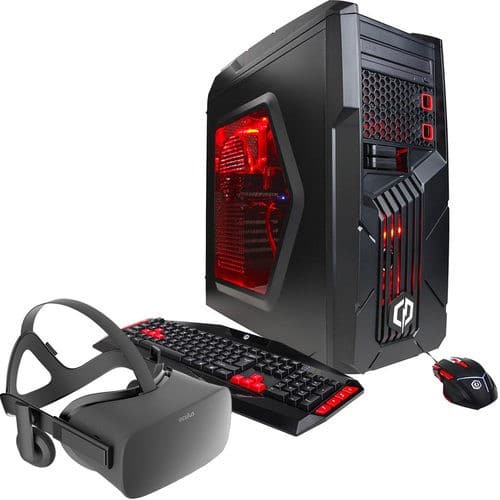
The $200 Oculus Go delivered on a low cost, completely standalone experience in 2018. But its lack of positional tracking and limited laser pointer controller meant it just doesn’t have the immersion or active content that 6DoF VR can deliver.
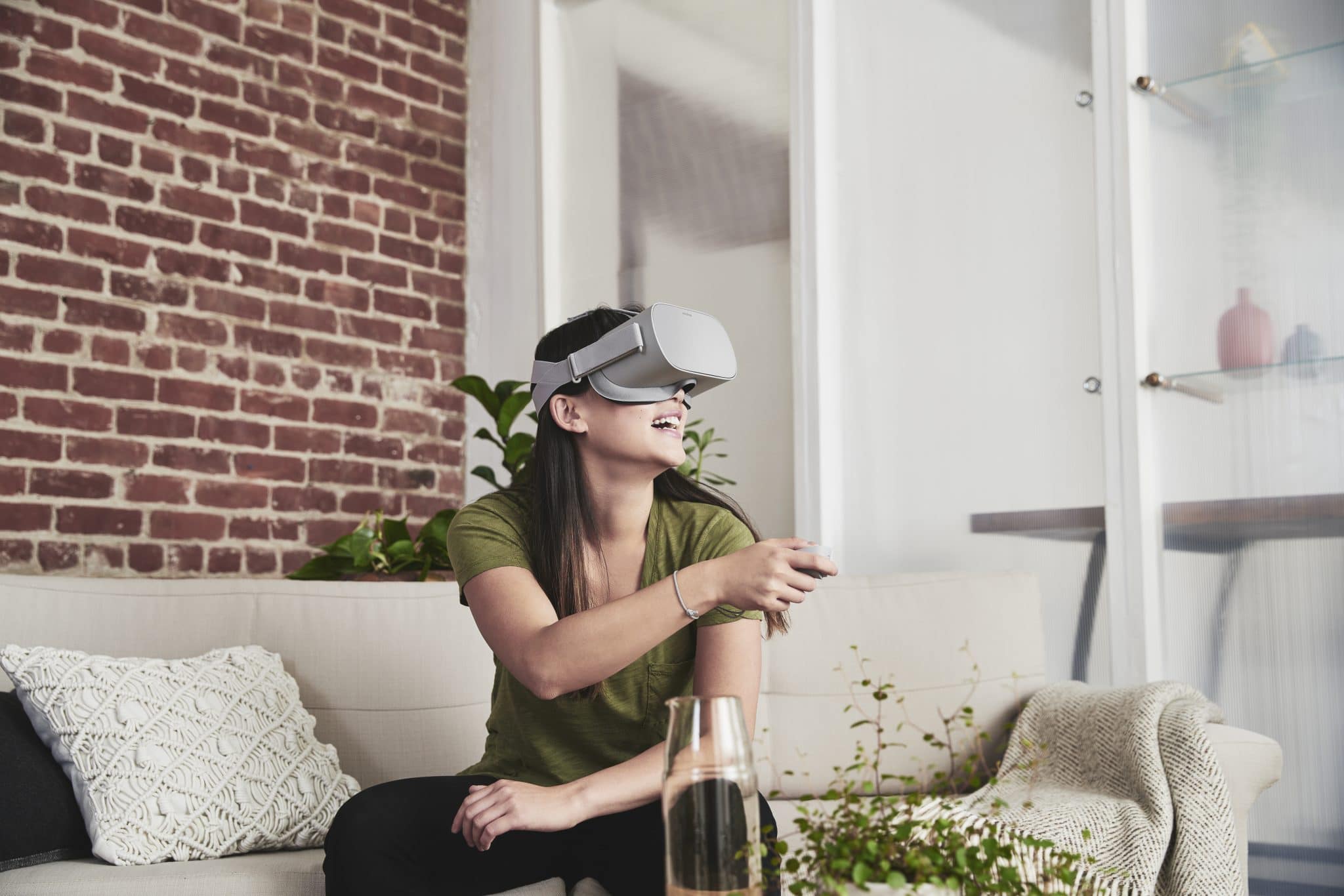
Quest appears to deliver on the ideal middle ground. In many ways, it is the type of VR headset Oculus always wanted to build, even before the Facebook acquisition. Fully standalone and wireless, but with room scale positional tracking and tracked controllers.
This lets Quest play the same kind of active room scale games as PC VR, while still remaining relatively affordable. The combination of these factors is the product’s unique offering.
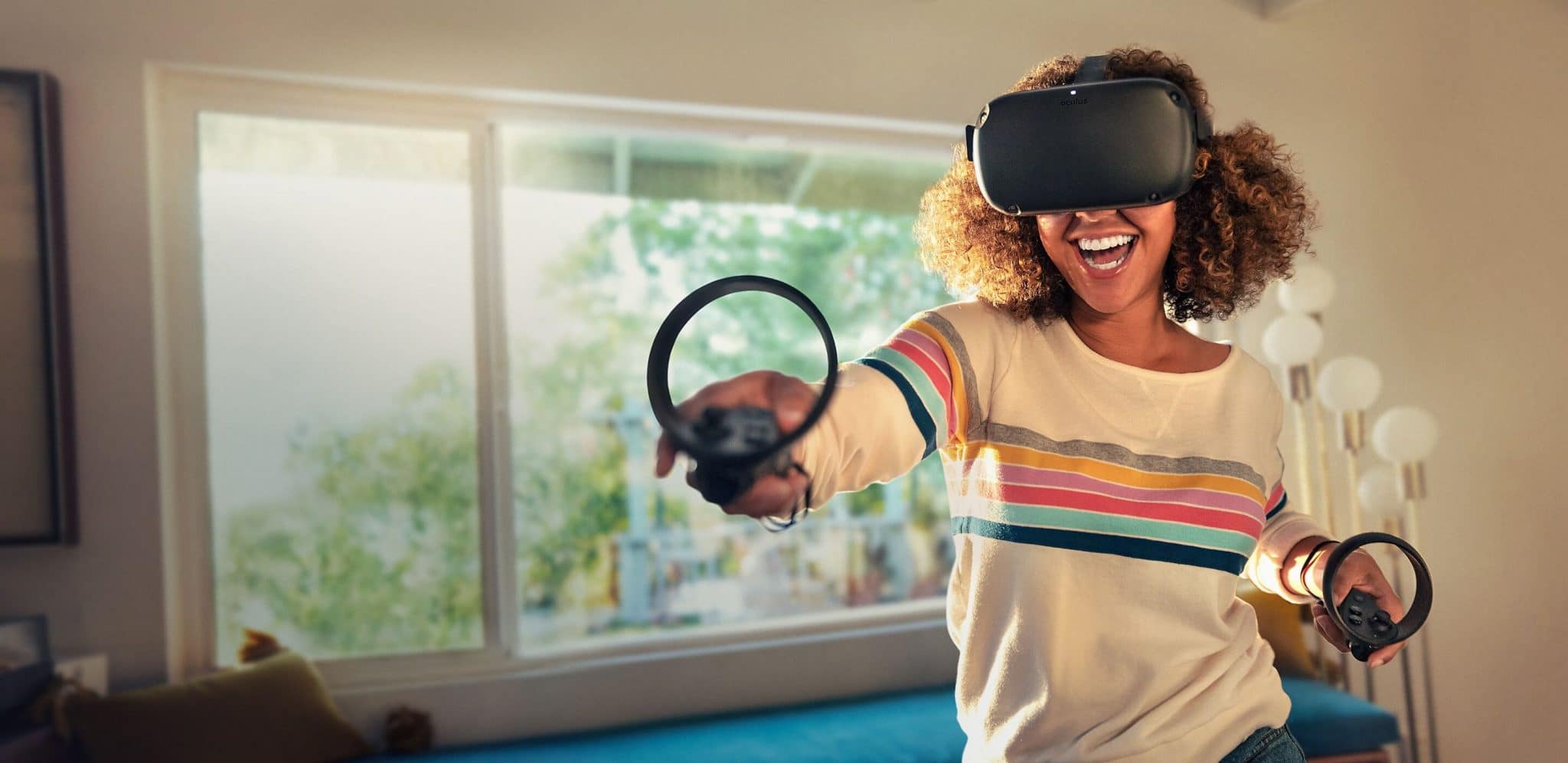
Quest has been consistently backordered since late November. In the US, a Rift S order placed on the official sales site at this time of writing would arrive on Monday, whereas a Quest would arrive four weeks later. Facebook executives stated on multiple occasions that it is building Quest “as fast as we can”.
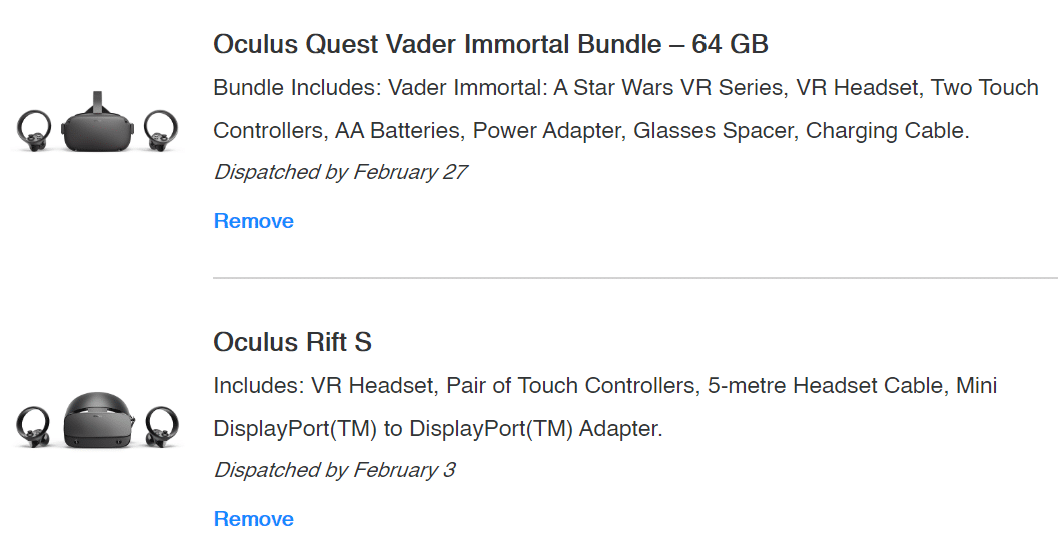
When Quest was formally announced as a product in September 2018, many in the industry were skeptical that its smartphone processor could deliver compelling enough experiences to drive consumer interest. Those doubts seem to have disappeared as many of PC VR’s most popular titles have been ported to the standalone headset. The graphics are much less detailed of course, but they retain the full body movement and hand-based interactions which work at any level of graphical realism.

